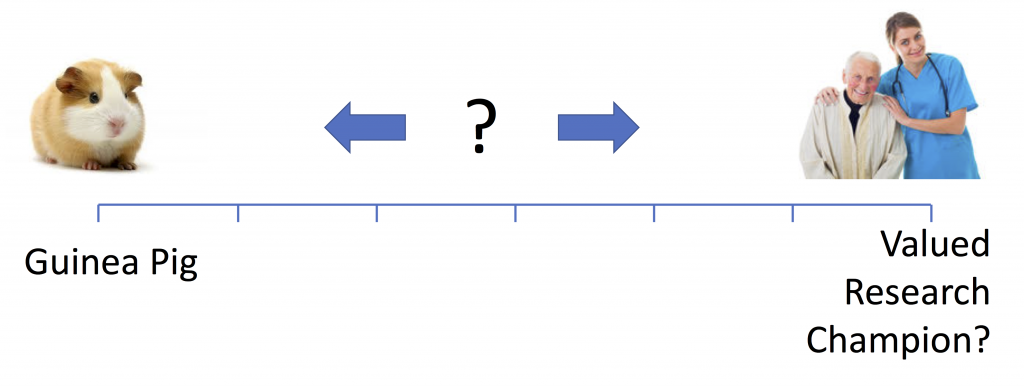
Sponsors have traditionally been hands-off when it comes to the relationship a patient may have with clinical research. They might provide materials to the site that in turn are passed onto the patient. They are required of course to provide a consent form. However, do they actually support the ‘engagement’?
Interventional clinical trials, by their definition, intervene with a patient’s care. They disrupt the care that a patient might otherwise receive. This is often for the good of the patient – They may gain access to therapies otherwise not available to them. However, they are impacted.
The sponsor is responsible for this impact. The patient might be asked to visit the investigator ten times during the course of a trial. They might be required to complete daily diaries. They might be asked to report events that occur.
But what recognition do they receive in return? How do the sponsors counter this negative impact they have on a patient?
Are your patients guinea pigs? – or are they valued research champions? The way you interact with your patients determines where on this spectrum your patients sit.
If the limits of your engagement is the provision of a patient information leaflet and an informed consent form… you are not doing very much! What about during the course of the study as they complete the umpteenth diary?
We advocate patient engagement in all our trials.
Sometimes, this might be light-weight – a simple thank you. Other times, this might be a full-blown engagement program with videos as they enter their virtual trial environment, ongoing reward points, accreditation levels, reminders, interactive communication with study support, etc. It is not ‘one size fits all’. It is about right sizing your engagement strategy.
Why Engage?
Besides being simply the right thing to do for the patient, engagement leads to better compliance, better retention, and better data.
Patients are more likely to answer diary questionnaires honestly and accurately if they feel they are party to critically important research, than, for example, if they feel they are nameless ‘guinea pigs’.
So… where are your patients on the engagement scale?

